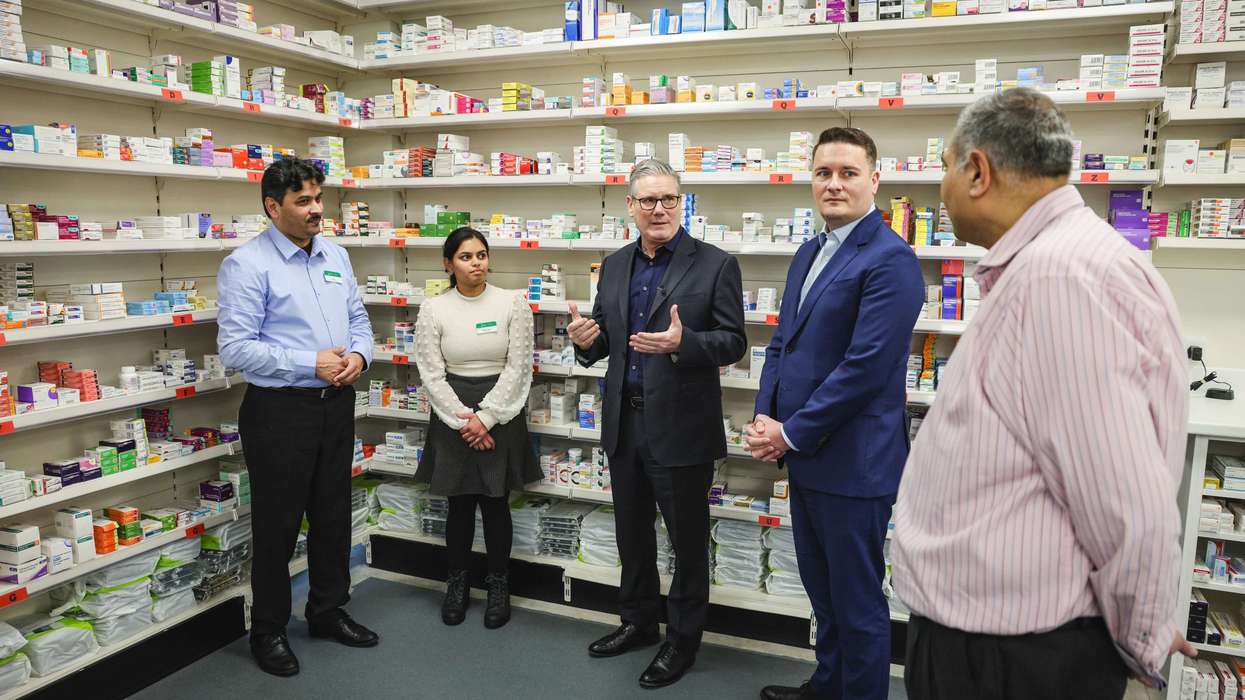Analysis by the National Pharmacy Association (NPA) has found that drug companies officially warned the government 28 times a week about potential medicine supply problems in the past five years.
A total of 7426 separate warnings were made since October 2020 – an average of around four a day - according to NPA analysis of official figures from the Department of Health and Social Care.
One in five warnings (22 per cent) were classified by government as carrying a ‘moderate to high’ risk to patient safety, the shocking new analysis reveals.
The warnings – known as Discontinuations and Shortages Notifications - are made by manufacturers to formally alert the Department of Health to the possibility of disruption to supply of a particular medicine or formulation.
The NPA warned medicine supply issues are ‘simply eye watering’ and causing a serious risk to patient safety.
“This new data is shocking and shows that the scale of medicine supply challenges is simply eye watering,” Olivier Picard, Chair of National Pharmacy Association said:
“Any patient who has spent time in a pharmacy recently will know just how common place medicine shortages are. Shortages frustrate patients and can also pose a serious safety risk, as this data shows.”
Similar analysis of Medicine Supply Notifications (MSNs), used by the NHS to notify pharmacies and other NHS providers of supply issues affecting a brand or formulation of a medication, found a 50 per cent increase in the use of MSNs from 2021 to 2024.
In 2021, 85 notifications were issued, compared to 130 in 2024.
The NPA have called on the government to urgently scrap ‘dangerous and antiquated’ legislation that prevents pharmacists from making substitutions to prescriptions where a prescribed medicine is out of stock.
The current rules from 1968 forbid pharmacists from doing things such as switching a prescription from tablets to capsules or even the flavour of liquid medication.
Previous NPA research found that patients experiencing chronic pain, the symptoms of psychosis or high blood pressure were waiting up to three weeks for prescriptions to be amended by their GP, going without medication or having to visit A&E in the meantime.
This also puts pressure back onto overstretched GP surgeries to issue another prescription for an alternative , as well as sending patients from pillar to post and delaying treatment.
The government recently launched a consultation on the issue but are proposing not to allow pharmacists make substitutions where there is a Medicine Supply Notification (MSN) in place. In these situations it is important for pharmacists to be able to utilise their clinical training and medicines expertise to the full to support access to the treatments their patients need.
Pharmacies have urged them to be bold and allow them greater flexibility, rather than ‘tinker around the edges’ given the volume of medication where a supply notification is in place. These are often the medications that are most likely to be in short supply.
“The legislation that prevents pharmacists from making any amendments to prescriptions was signed into law the same year as the advent of colour television and the Beatles were riding high at number one,” said Picard.
“These rules are antiquated, dangerous and simply not fit for purpose. it is madness to send someone back to their GP to get a prescription changed when a safe alternative is in stock.
“Although it is good news that government are consulting on this issue, it is critical that both pharmacists and patients reply to this consultation and make clear that Ministers cannot simply tinker around the edges when highly experienced pharmacists can get people safe access to the medicines they need.”












